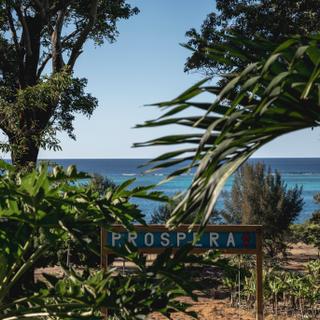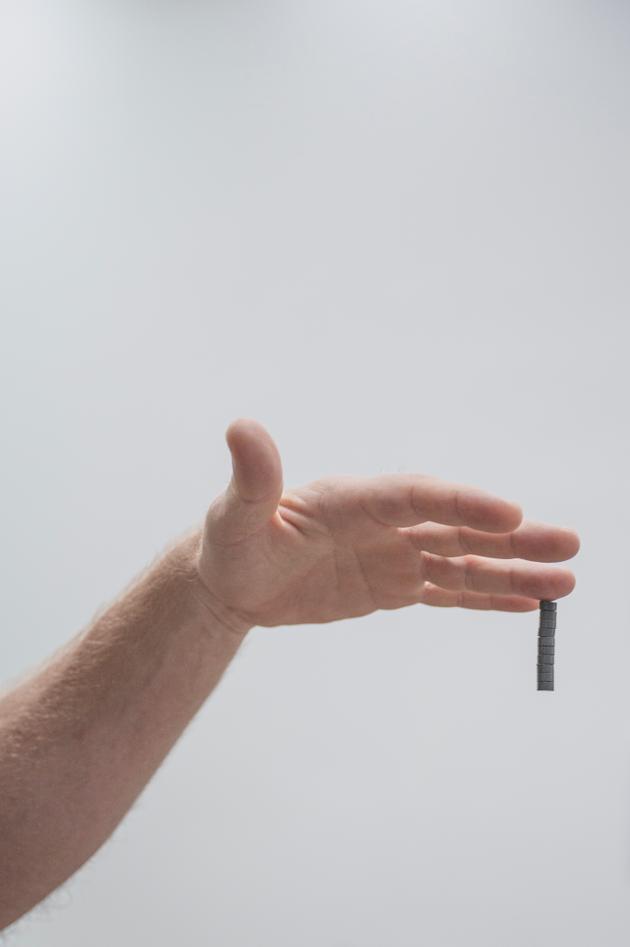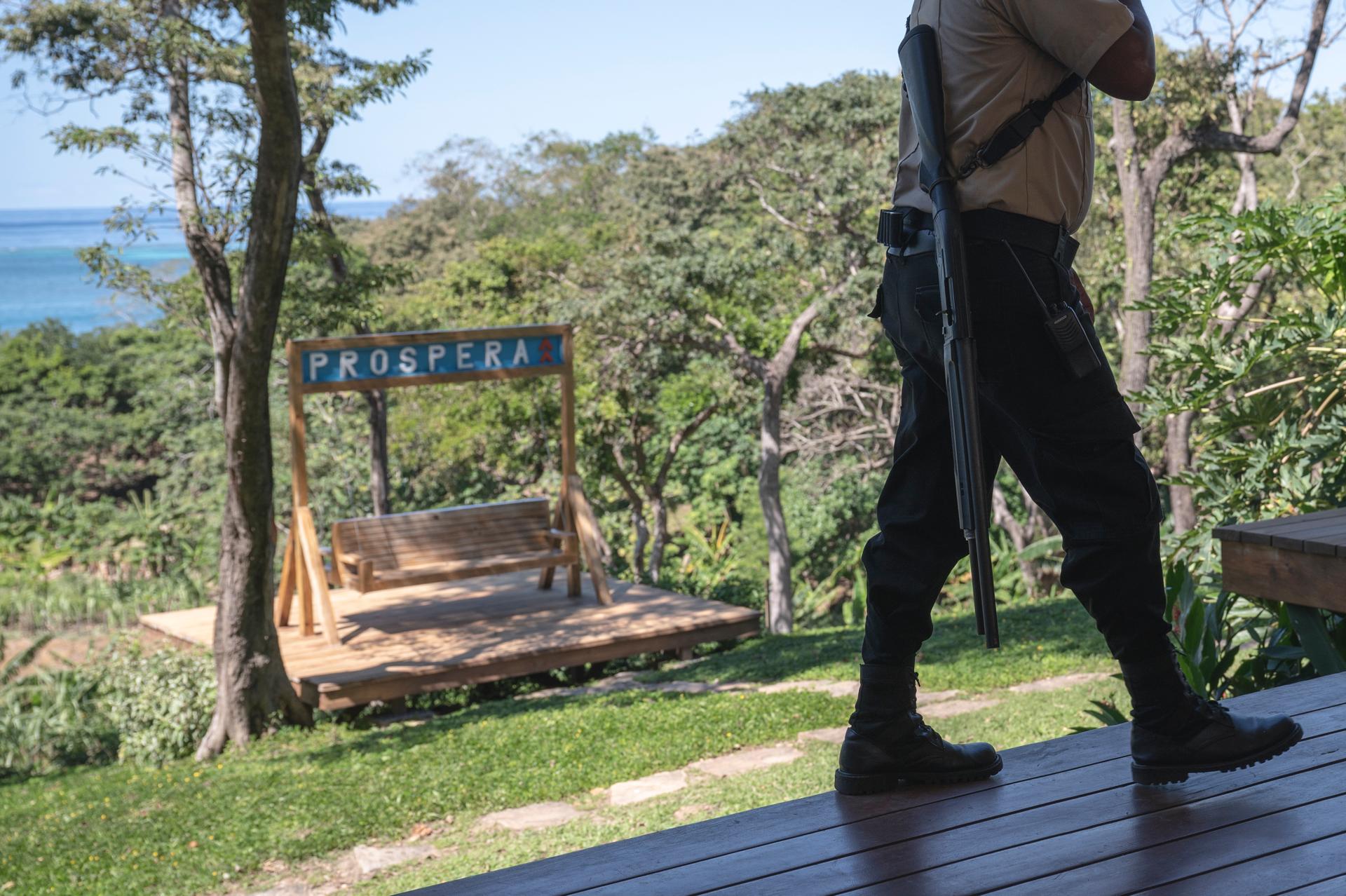


Prospera, the eccentric private libertarian enclave in Honduras
InvestigationInvestors have taken advantage of Honduran law to build a private city with its own rules, a utopia for those advocating the abolition of the state – a project that has proved divisive.
"Welcome to Vitalia. The city where death is optional." Beneath a white tent just a few meters from the Caribbean's turquoise waters, multiple speakers explain at a conference how life can be extended. Participants listen while lying on soft bean bags. Next door, above the huge swimming pool of Pristine Bay's Beach Club, young start-ups surf the internet using Elon Musk's Starlink satellite dishes, while others take yoga classes or learn about cryptocurrencies. In the basement laboratory, people can have magnets implanted in their fingertips or get injected with follistatin to take part in a longevity gene therapy trial.

This medical trial may not have been approved by health authorities in any country, but that doesn't matter. Anything is possible in Prospera, on the island of Roatan in Honduras. Prospera is a Zone for Employment and Economic Development (ZEDE) – a kind of state within a state, with its own laws, legal system and police force, where everything, from education to health care and public services, is private. It is an enclave city designed by libertarians, convinced that only the prospect of economic gain can guarantee good management.
This utopia – or dystopia, depending on your point of view – is inspired by the "free private cities" conceptualized notably by German economist Titus Gebel, who said: "For a fixed [yearly] fee, the operator offers citizens of the free private city protection of life, liberty and property." These three "rights" are the mantra of libertarians such as Argentina's President Javier Milei. Residents must pay for the insurance they need against illness and disability.
Since 2017, Prospera has acquired two square kilometers – representing 3% – of the Caribbean island of Roatan. Four years earlier, a Honduran law introduced a new territorial division through a constitutional amendment: the ZEDE. Its goal, to create "hundreds of thousands of jobs" by attracting foreign investors to a country where 64% of the population lives below the poverty line. "Trade laws, the civil code, environmental protection laws... none of it applies in the ZEDEs," explained Jorge Colindres, Prospera's technical secretary, the equivalent of a mayor. The Honduran penal code remains in force "until the ZEDEs approve their own laws."

While the city of Prospera is intended to welcome 10,000 inhabitants, it still lacks streets, stores or a hospital. Entering it requires providing ID to an armed guard at the gates, but its 2,125 residents don't necessarily live there: resident status can be obtained online for $1,300 a year – five times less for Hondurans – and after a review of criteria such as criminal record or respect for "Prospera's reputation and social harmony." ZEDEs "reserve the right not to accept major criminals, Communists and Islamists," explained Titus Gebel in 2019, who is an investor in Honduras Prospera Inc.
You have 85.86% of this article left to read. The rest is for subscribers only.
